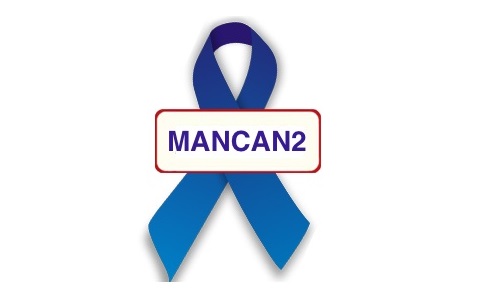New trial aims to reduce treatment side effects for men with prostate cancer

A new trial* is investigating whether nurse-delivered cognitive behavioural therapy (CBT) can help reduce hot flushes and night sweats experienced by men undergoing hormonal treatment for prostate cancer.
Around half of all men who are diagnosed with prostate cancer receive a hormonal treatment called androgen deprivation therapy, or ADT, which reduces or blocks their levels of the male hormone testosterone.
But up to 80% of men who undergo ADT will experience troublesome side effects of which the most common are hot flushes and night sweats (HFNS).
“Although ADT is an effective treatment for many men with prostate cancer, the side effects can have a serious impact on their quality of life,” says Dr Simon Crabb, Associate Professor of Medical Oncology and Chief Investigator of the MANCAN2 trial.
“Many patients will experience sleep disturbance, anxiety, low moods, and in some cases the side effects can be so severe that they decide to stop treatment altogether. If we can improve the experiences of men on ADT by reducing these side effects with a simple, non-medical intervention, this will hopefully benefit patients and healthcare providers in the future.”
 Cognitive behavioural therapy (CBT) is a talking therapy that can help people to manage some mental and physical health problems by changing the way they think about, and deal with, their thoughts and symptoms.
Cognitive behavioural therapy (CBT) is a talking therapy that can help people to manage some mental and physical health problems by changing the way they think about, and deal with, their thoughts and symptoms.
A previous single centre study** has shown that guided CBT delivered by a clinical psychologist is effective in reducing HFNS symptoms for men with prostate cancer.
The MANCAN2 study, run by the Southampton Clinical Trials Unit***, is now investigating whether similar self-help CBT sessions delivered by NHS Prostate Cancer Nurse Specialist teams can be as effective.
Alannah Morgan, Trial Manager for MANCAN2 at the Southampton Clinical Trials Unit, said: “We hope that having the CBT delivered by nurses who already know the patients, and will be seeing them routinely, can not only reduce symptoms of HFNS, but also increase patients’ willingness to use the intervention and make this cost effective to the NHS.”
“A recent study in women with breast cancer, who received group CBT from a breast care nurse, saw menopausal symptoms reduced by over a quarter and this gives us great hope that the MANCAN2 trial can show a similar benefit for men with prostate cancer.”
The trial aims to recruit up to 180 men who are being treated with ADT and are experiencing side effects across seven participating UK hospitals. The first of two of these, University Hospital Southampton and Nottingham City Hospital, are now open to recruitment.
Men who consent to take part will be randomly allocated to one of two groups: one group will continue to receive standard treatment as usual, and the other group will receive standard treatment alongside a four-week guided self-help CBT intervention with virtual group workshops led by cancer care nurses.
All participants will be asked to complete questionnaires at 6 weeks and 6 months to see whether those who receive the CBT intervention report any reduction in symptoms.
Roger Bacon is a prostate cancer survivor and Chair of PCaSO Prostate Cancer Support Organisation covering Hampshire, Dorset and Sussex, and is working with the MANCAN2 trial team to provide patient input into the study.
“For some men on ADT it can be a nightmare experience suffering hot flushes, night sweats and more,” says Roger. “Hopefully this trial will give men ways of dealing with those symptoms, so they can take charge and be in control of their ADT side effects.”
The MANCAN2 trial is being funded by the National Institute for Health Research (NIHR) and sponsored by University Hospital Southampton NHS Foundation Trust.
Notes for editors
*MANCAN 2 - A multicentre randomised controlled trial of virtual self-help cognitive behavioural therapy to MANage the impact of hot flush and night sweat symptoms in patients with prostate CANcer undergoing androgen deprivation therapy. Find out more on the MANCAN 2 trial website.
**MANCAN 1 - was a single centre randomised controlled trial of 68 patients which compared guided self-help CBT delivered by a clinical psychologist to treatment as usual. Findings showed that guided CBT was a safe and effective way of reducing HFNS symptoms. Find out more here.
***The Southampton Clinical Trials Unit (CTU) has expertise in the design, conduct and analysis of interventional, multi-centre clinical trials. The CTU is based within the University of Southampton with offices at the University Hospital Southampton NHS Foundation Trust Southampton General Hospital site. For more information, visit the SCTU website.
****MENOS 4 - A multicentre randomised controlled trial of a breast care nurse delivered cognitive behavioural therapy (CBT) intervention to reduce the impact of hot flushes in women with breast cancer. Read more on the results of the MENOS 4 trial here.